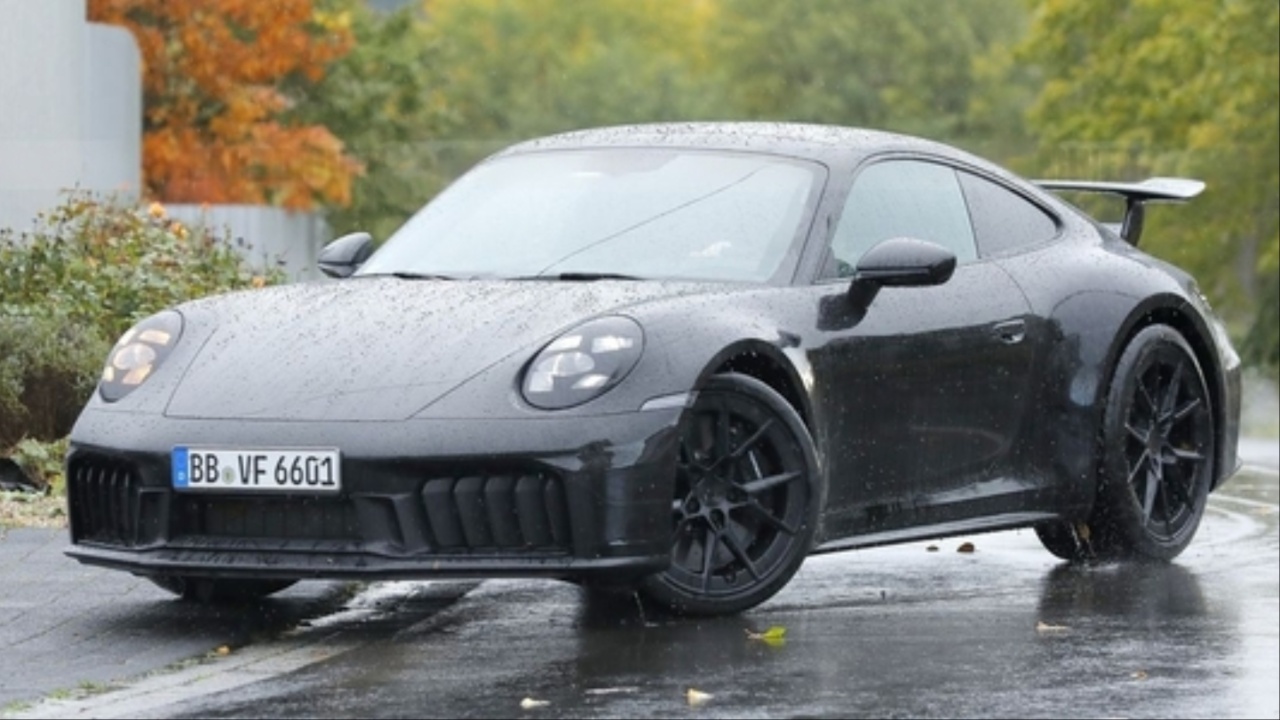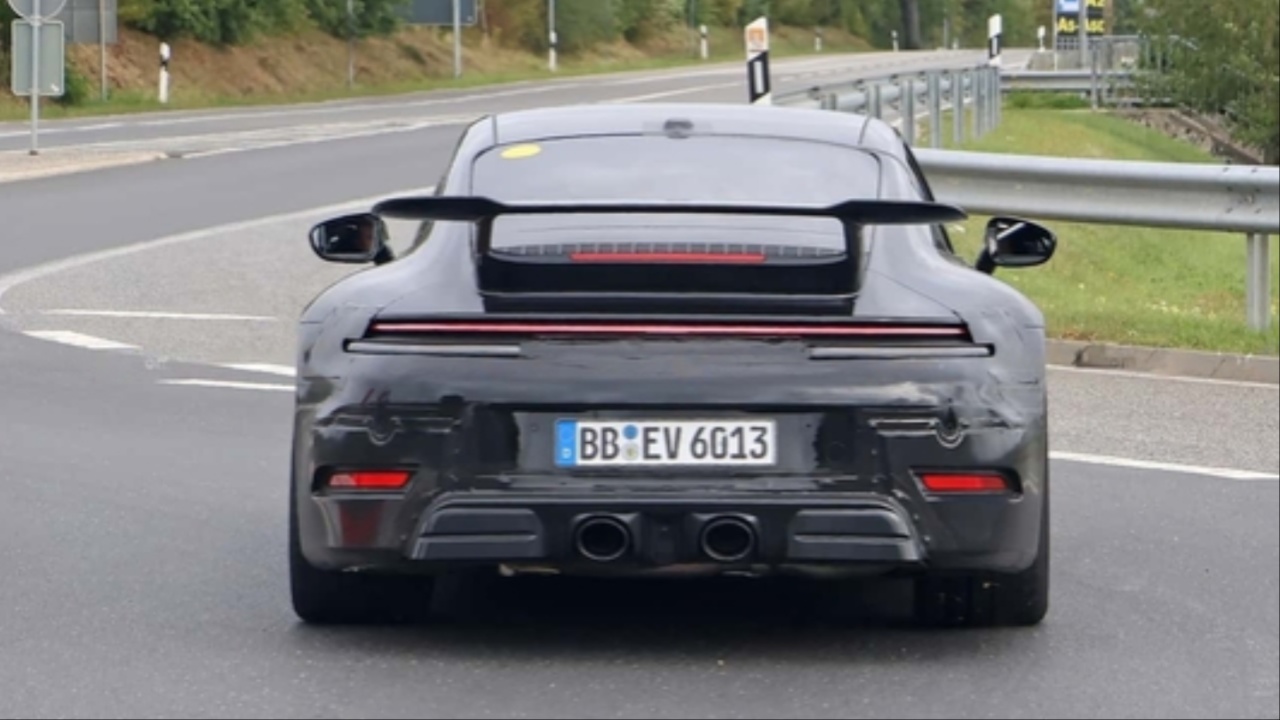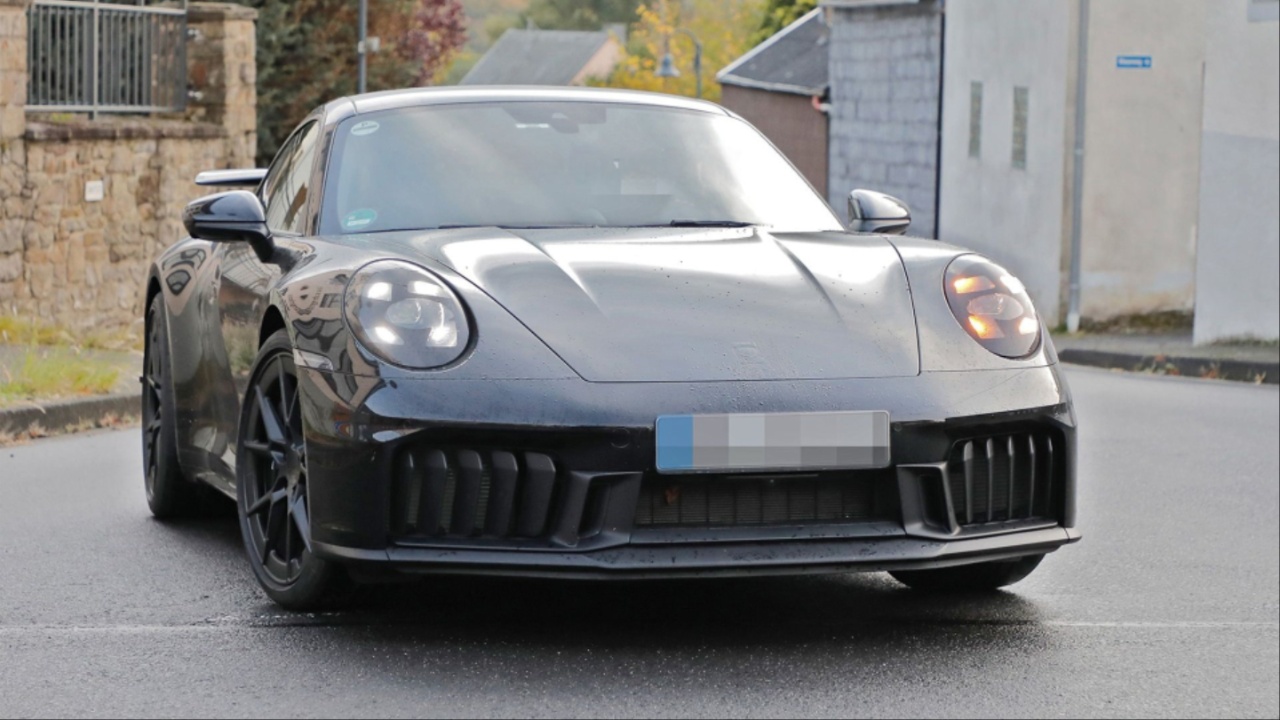The upcoming 2025 model of the Porsche 911, designated as the 992.2, will showcase refreshed front and rear designs, an updated cockpit, and various detail enhancements, including the integration of 48-volt hybrid systems across the engine lineup. However, the standout feature for this iteration is the introduction of the T-HEV hybrid system, a significant stride toward electrification. Though Porsche has yet to disclose specifics about this hybrid technology, information obtained from two independent dealers suggests its existence, with deliveries expected no earlier than the calendar year 2025.
Distinguishing itself from competitors like the Ferrari 296 GTB and McLaren Artura plug-in hybrids, the Porsche T-HEV unit is designed for on-the-go charging and does not support plug-in functionality. The electric motor, bolstered by a high-performance Varta battery (approximately 2.0 kWh), can generate an additional 80 to 90 horsepower.

The 400-volt system, inspired by Formula 1’s KERS technology and reportedly co-developed with Rimac, features an integrated starter generator for instant boosts and auxiliary equipment drive. Positioned beneath the fuel tank, the electric motor enhances front-wheel propulsion and optimizes weight distribution.
The core of the T-HEV system revolves around a compact battery, constantly replenished by both the combustion engine and kinetic energy recuperation during braking. Manual gearbox options are excluded for simplicity. The entire T-HEV module is claimed to weigh no more than 55 pounds. The engine, a modified twin-turbo 3.0-liter flat-six, is projected to deliver 395 hp and 347 pound-feet of torque, with the electric motor contributing approximately 84 hp and 129 pound-feet.
This synergistic combination is anticipated to yield a combined output of around 478 hp and 475 pound-feet of torque. Rumors suggest an even more potent 528-hp version is being developed to bridge the gap between the enhanced 911 GTS and the forthcoming 911 Turbo. The top-tier GT2 RS, expected in 2026, is also rumored to incorporate a hybrid setup.

Beyond the T-HEV system, significant engine changes are anticipated across the 911 lineup. The Carrera and Carrera S will retain the twin-turbo 3.0-liter flat-six, while the GTS will adopt a naturally aspirated 3.6-liter flat-six, and the Turbo and Turbo S will shift to an advanced twin-turbo 3.6-liter engine. Additionally, the Carrera S and GTS will feature a 48-volt hybrid system. Power outputs for these models are expected to increase, with the Carrera reaching 390 hp, the Carrera S climbing to 454 hp, and the GTS boasting 483 hp.
The article also outlines engine details for the future 911 Turbo and Turbo S, incorporating a more economical 3.6-liter version. A naturally aspirated 4.0-liter flat-six with a 48-volt hybrid system is slated for the next GT3 and GT3 Touring, while a more efficient 3.6-liter engine is planned for the 2027 GT3 iteration, aligning with upcoming European emission regulations.
The 992.2, set to arrive in 2025, showcases a redesigned exterior with new soft parts, including bumpers, wheels, lights, mirrors, and aero aids. Notably, the front air intake features adjustable vertical louvers, and various models offer different exhaust configurations. Differentiation is achieved through Turbo, GT3, GT2 RS, and Sport Design packs, each with distinctive aerodynamic treatments.
Internally, the 992.2 boasts a new fully electronic hi-res instrument panel and an operating system with enhanced software. However, a more comprehensive update is expected with the all-new 994 model in 2027.
While there were initial discussions about an electric 998 generation debuting in 2028, recent information suggests a delay until the early 2030s, possibly around 2034. The electric 911 is expected to coexist with internal combustion models, which could potentially be fueled by e-fuels.

